-
 Bitcoin
Bitcoin $118800
-0.43% -
 Ethereum
Ethereum $4231
-0.53% -
 XRP
XRP $3.140
-1.41% -
 Tether USDt
Tether USDt $1.000
-0.02% -
 BNB
BNB $808.5
0.57% -
 Solana
Solana $175.1
-4.38% -
 USDC
USDC $0.9999
0.01% -
 Dogecoin
Dogecoin $0.2229
-4.71% -
 TRON
TRON $0.3458
2.18% -
 Cardano
Cardano $0.7744
-3.43% -
 Hyperliquid
Hyperliquid $43.19
-4.44% -
 Chainlink
Chainlink $21.19
-4.12% -
 Stellar
Stellar $0.4313
-2.84% -
 Sui
Sui $3.659
-5.59% -
 Bitcoin Cash
Bitcoin Cash $580.1
1.65% -
 Hedera
Hedera $0.2472
-4.61% -
 Ethena USDe
Ethena USDe $1.001
-0.03% -
 Avalanche
Avalanche $22.88
-3.98% -
 Litecoin
Litecoin $120.5
-2.63% -
 Toncoin
Toncoin $3.375
0.74% -
 UNUS SED LEO
UNUS SED LEO $8.984
-1.31% -
 Shiba Inu
Shiba Inu $0.00001296
-4.28% -
 Uniswap
Uniswap $11.06
1.08% -
 Polkadot
Polkadot $3.869
-4.65% -
 Cronos
Cronos $0.1664
1.09% -
 Dai
Dai $1.000
0.00% -
 Ethena
Ethena $0.7979
0.07% -
 Bitget Token
Bitget Token $4.395
-1.14% -
 Monero
Monero $268.2
-0.19% -
 Pepe
Pepe $0.00001125
-6.91%
What is the reason for the sudden disappearance of the Kraken trading pair?
Kraken delists trading pairs due to regulatory changes, low trading volume, security concerns, or project-specific issues, prioritizing user protection and platform stability; communication about delistings occurs via official channels.
Mar 19, 2025 at 07:25 am
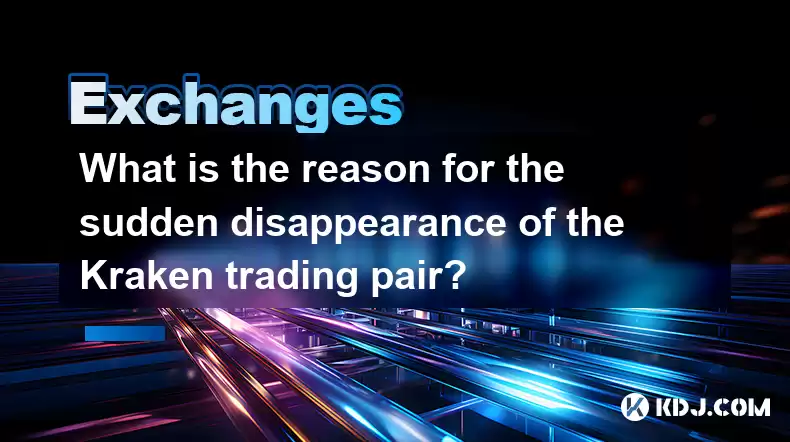
Key Points:
- Delisting Reasons: Kraken's removal of trading pairs isn't random. It's usually due to regulatory changes, low trading volume, security concerns, or the project's own issues.
- Regulatory Scrutiny: Increased regulatory pressure globally forces exchanges to delist assets that don't meet compliance standards. This is a significant factor in many delistings.
- Liquidity and Trading Volume: Low trading volume makes a pair unsustainable for an exchange. Maintaining infrastructure for low-volume pairs is costly and inefficient.
- Security Risks: If a cryptocurrency project shows signs of vulnerability or is suspected of fraudulent activity, Kraken will often delist it to protect its users.
- Project-Specific Issues: Internal issues within a cryptocurrency project, such as a rug pull, hard fork disputes, or significant technical problems, often lead to delisting.
What is the reason for the sudden disappearance of the Kraken trading pair?
The sudden disappearance, or delisting, of a trading pair on Kraken, a prominent cryptocurrency exchange, is rarely sudden. While it might seem abrupt to users, a series of factors usually precede such an action. It's crucial to understand that Kraken, like other exchanges, constantly assesses the assets it lists based on various criteria.
Regulatory Changes and Compliance:
One of the most significant reasons for delisting is compliance with evolving regulations. Different jurisdictions have varying rules concerning which cryptocurrencies can be legally traded. If a cryptocurrency falls afoul of these regulations, Kraken may be forced to delist it to avoid legal repercussions. This is particularly relevant given the increasing global scrutiny of the cryptocurrency industry.
Low Trading Volume and Liquidity:
Maintaining a trading pair requires significant resources. Kraken, like any exchange, incurs costs associated with infrastructure, security, and customer support. If a trading pair consistently shows extremely low trading volume, it becomes economically unsustainable for Kraken to continue offering it. The exchange prioritizes pairs with sufficient liquidity to ensure smooth trading for its users.
Security Concerns and Risk Assessment:
Kraken prioritizes the security of its platform and user funds. If a cryptocurrency project exhibits security vulnerabilities, is suspected of fraudulent activities (like rug pulls), or is involved in scams, Kraken will promptly delist it to mitigate potential risks. Thorough due diligence is conducted before listing, but ongoing monitoring is equally important.
Internal Issues within the Cryptocurrency Project:
Problems within the cryptocurrency project itself can lead to delisting. This could include internal disputes, hard forks that create conflicting versions of the cryptocurrency, or significant technical glitches that render the asset unusable or insecure. Such internal conflicts can destabilize the project and pose risks to investors.
The Delisting Process:
While the disappearance might appear sudden, Kraken typically provides some form of notification, although the notice period can vary. This may include an announcement on their website or via email to affected users. The timing depends on the urgency of the situation; for instance, a security risk might require immediate delisting with little prior notice.
Understanding the Cryptocurrency Market Dynamics:
The cryptocurrency market is highly volatile and rapidly evolving. New projects emerge, and existing ones face challenges. The delisting of a trading pair reflects these dynamics and shouldn't necessarily be interpreted as a reflection of Kraken's overall stability or reliability. The exchange's decision to delist is often a proactive measure to protect its users and maintain a secure and compliant platform.
How does Kraken communicate delistings?
Kraken typically announces delistings through official channels, such as their website's news section, email notifications to affected users, and sometimes social media. The method and timing depend on the urgency and nature of the delisting.
What happens to my funds if a trading pair is delisted?
If a trading pair is delisted, you will still be able to access and manage your holdings of that specific cryptocurrency on Kraken. However, you will no longer be able to trade it on the exchange until or unless it is relisted.
Can I expect Kraken to relist a delisted trading pair?
There's no guarantee. Whether a delisted pair will be relisted depends entirely on the reasons for its removal and whether those issues are resolved. Regulatory changes, for example, might necessitate a permanent delisting.
Is a delisting a sign of a bad investment?
Not necessarily. While a delisting can sometimes indicate problems with a cryptocurrency project, it's not always the case. Low trading volume, regulatory changes, or even a project's strategic decision to focus on other exchanges can also contribute to delisting. It's crucial to conduct thorough research before investing in any cryptocurrency.
What alternative exchanges can I use to trade the delisted pair?
Other cryptocurrency exchanges might still list the delisted pair. However, you should research the reputation and security measures of any new exchange before transferring your funds. The availability of a particular cryptocurrency will vary across different exchanges.
What steps should I take if I see a trading pair disappear?
First, check Kraken's official website for announcements. If you find information regarding the delisting, understand the reason behind it. If you have concerns about your funds, contact Kraken's customer support for assistance.
Are there any fees associated with a delisting?
Typically, there are no direct fees charged to users due to a delisting. However, you may incur transaction fees if you choose to transfer your assets to another exchange.
Disclaimer:info@kdj.com
The information provided is not trading advice. kdj.com does not assume any responsibility for any investments made based on the information provided in this article. Cryptocurrencies are highly volatile and it is highly recommended that you invest with caution after thorough research!
If you believe that the content used on this website infringes your copyright, please contact us immediately (info@kdj.com) and we will delete it promptly.
- Dogecoin, Meme Coins, and Whale Buys: What's the Hype?
- 2025-08-12 06:50:12
- Bitcoin, Ethereum, and the Pump-and-Dump Merry-Go-Round: A New Yorker's Take
- 2025-08-12 07:10:12
- MAGACOIN Mania: Why Holders Are Staking Their Claim in This Bull Season
- 2025-08-12 06:30:13
- Heritage Distilling's Bold Bet: A $360M IP Treasury Powered by Story Protocol
- 2025-08-12 06:30:13
- LayerZero, Stargate Bridge, and the Token Deal That Wasn't: What Happened?
- 2025-08-12 07:10:12
- Floki Price Prediction & Technical Analysis: Navigating the Viking Dog Coin
- 2025-08-12 07:15:17
Related knowledge
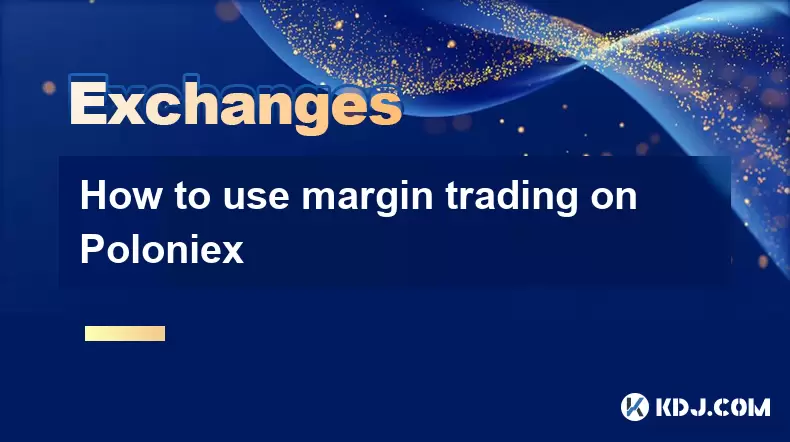
How to use margin trading on Poloniex
Aug 08,2025 at 09:50am
Understanding Margin Trading on Poloniex
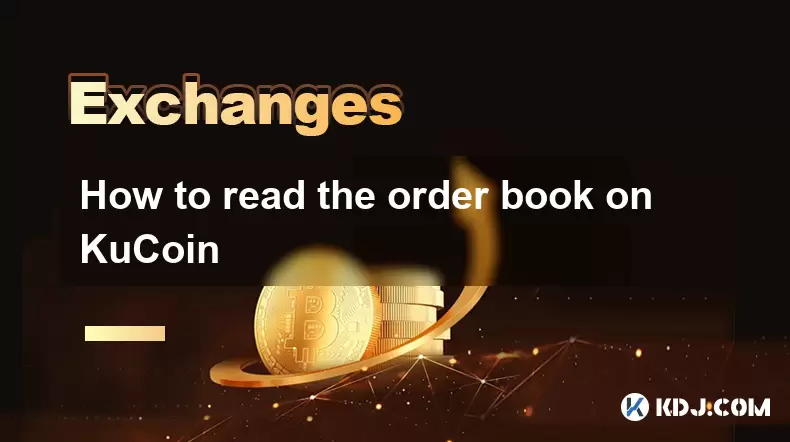
How to read the order book on KuCoin
Aug 10,2025 at 03:21pm
Understanding the Order Book Interface on KuCoinWhen accessing the order book on KuCoin, users are presented with a real-time display of buy and sell ...
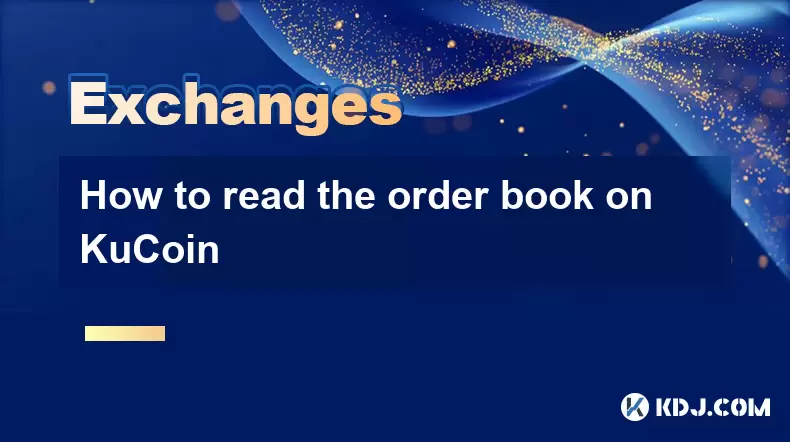
How to read the order book on KuCoin
Aug 12,2025 at 02:28am
Understanding the Basics of Staking in CryptocurrencyStaking is a fundamental concept in the world of blockchain and cryptocurrencies, particularly wi...
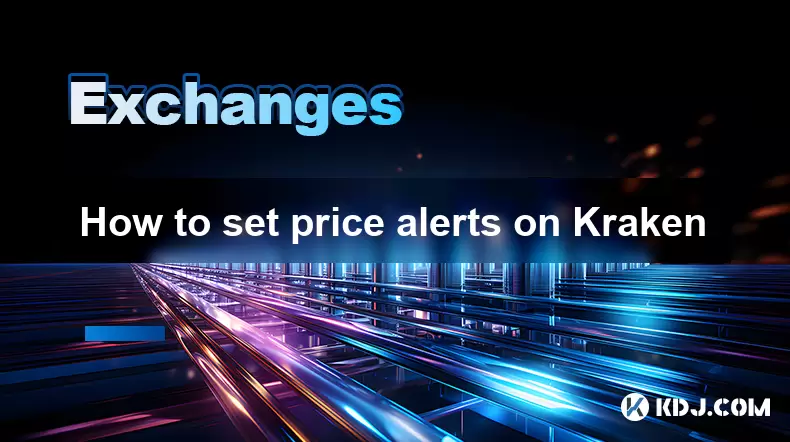
How to set price alerts on Kraken
Aug 11,2025 at 08:49pm
Understanding Price Alerts on KrakenPrice alerts on Kraken are tools that allow traders to monitor specific cryptocurrency pairs for price movements. ...
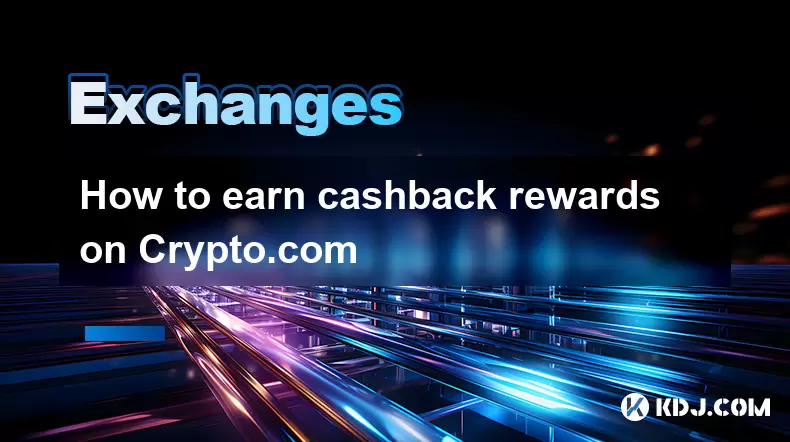
How to earn cashback rewards on Crypto.com
Aug 12,2025 at 02:08am
Understanding Cashback Rewards on Crypto.comCashback rewards on Crypto.com are a feature designed to incentivize users to spend using their Crypto.com...
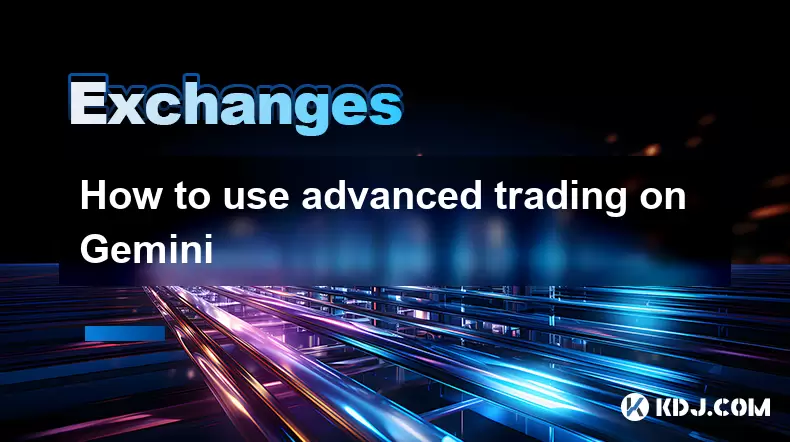
How to use advanced trading on Gemini
Aug 08,2025 at 04:07am
Understanding Advanced Trading on GeminiAdvanced trading on Gemini refers to a suite of tools and order types designed for experienced traders who wan...

How to use margin trading on Poloniex
Aug 08,2025 at 09:50am
Understanding Margin Trading on Poloniex

How to read the order book on KuCoin
Aug 10,2025 at 03:21pm
Understanding the Order Book Interface on KuCoinWhen accessing the order book on KuCoin, users are presented with a real-time display of buy and sell ...

How to read the order book on KuCoin
Aug 12,2025 at 02:28am
Understanding the Basics of Staking in CryptocurrencyStaking is a fundamental concept in the world of blockchain and cryptocurrencies, particularly wi...

How to set price alerts on Kraken
Aug 11,2025 at 08:49pm
Understanding Price Alerts on KrakenPrice alerts on Kraken are tools that allow traders to monitor specific cryptocurrency pairs for price movements. ...

How to earn cashback rewards on Crypto.com
Aug 12,2025 at 02:08am
Understanding Cashback Rewards on Crypto.comCashback rewards on Crypto.com are a feature designed to incentivize users to spend using their Crypto.com...

How to use advanced trading on Gemini
Aug 08,2025 at 04:07am
Understanding Advanced Trading on GeminiAdvanced trading on Gemini refers to a suite of tools and order types designed for experienced traders who wan...
See all articles

























































































